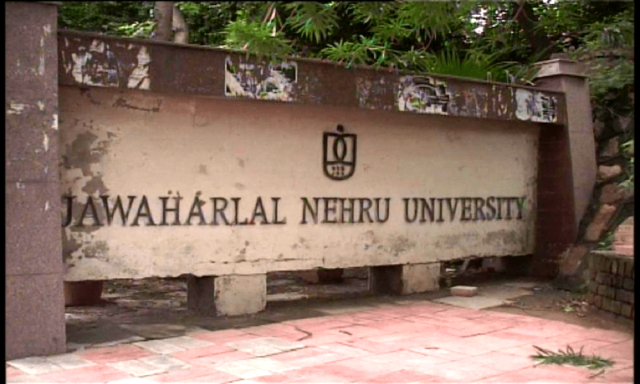By Mansi Rawat
The prestigious Jawaharlal Nehru University (JNU), New Delhi, has announced a shift to computer-based entrance exams for MPhil and PhD admissions in September 2018. They have also postponed the entrance from December 2018 to May 2019.
According to M Jagdesh Kumar, Vice-Chancellor JNU, “JNU is the first Central University to be collaborating with National Testing Agency (NTA) to conduct its national-level entrance examination across the country”.
This decision has already received a huge backlash from different personalities.
What do we require: Information or Knowledge?
JNU has since long been associated with research, academics and the ethos of the so-called Arts(Humanities) subjects. It has been an institution to which students have looked up for higher studies.
With the inception of an MCQ (Multiple Choice Question) system for JNU entrance, the entire purpose of higher education seems to come crashing down.
The larger question to ponder is: “What is the purpose of higher education?”
Is it simply mugging up of information and reproducing it back in the examination or is it about generating knowledge and application of it?
Why is there this fundamental change?
This shift in the pattern of examination has been because of it was believed that there was a bias in selecting students through a subjective examination because of lack of definite answers.
It was stated by a lot of people that JNU questions were ideologically coloured and only students who wrote answers leaning towards “left” were selected.
But this argument came heavily under attack. Firstly because the political spectrum of JNU faculty ranges across the wide spectrum. Right, left or centre the teachers are less concerned with the substance of the argument, and more with the manner of making an argument.
Also Read: Why Have Reputed Universities Like DU And JNU Become Hotbed Of Drug Abuse?
Why is everyone against MCQ?
The problem with multiple choice questions (MCQ) is that it limits the scope of an answer to one of its options. It makes the process rigid, closed and forces the students to have one set of views.
The usage of MCQ for JNU is even more unacceptable because students of M.Phil or PhD are expected to have certain traits like, contribution to the growth of knowledge and clarity in opinions regarding any topic which gets restricted due to MCQ as opposed to subjective questions.
Also, MCQs don’t make sense in subjects like History, Political science, Philosophy, English, Sociology etc. These subjects do not test the factual opinions an individual has instead they are about thorough opinions and unending answers.
MCQ questions do not develop the critical thinking skill set amongst the students.
Existential questions also often pop up in my mind because who chooses the “correct” answer? Every person has their own justification for what should be the correct answer.
It’s sad that the times we live our education and the value for subjects has been limited to a well-paying job or GK for UPSC and not for the purpose of curiosity, deeper meanings of the subject.
The education industry is becoming a profit-making venture. It’s all getting commercialised to the point we can do nothing about it. In fact, this step of JNU of limiting knowledge to an option or MCQs is only worsening the situation.
Sources: DU Beat, Daily Pioneer, EPW
Image Sources: Google Images
You’d Also Like To Read:



































I think JNU did right by opting for mcq cause the copies will be evaluated unbiased ans secondly none can show creativity in an entrance exam where syllabus is not fixed….only fools can oppose this decision if the paper was subjective are you sure that the person who’s evaluating is reading line by line that’s impossible for such a huge number of candidates its not practical at all